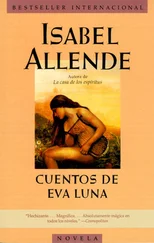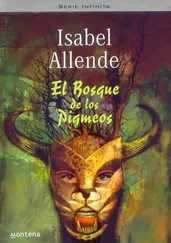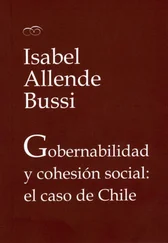Isabel Allende - Zorro
Здесь есть возможность читать онлайн «Isabel Allende - Zorro» весь текст электронной книги совершенно бесплатно (целиком полную версию без сокращений). В некоторых случаях можно слушать аудио, скачать через торрент в формате fb2 и присутствует краткое содержание. Год выпуска: 2005, ISBN: 2005, Издательство: Harper Perennial, Жанр: Исторические приключения, на английском языке. Описание произведения, (предисловие) а так же отзывы посетителей доступны на портале библиотеки ЛибКат.
- Название:Zorro
- Автор:
- Издательство:Harper Perennial
- Жанр:
- Год:2005
- ISBN:9780060779009
- Рейтинг книги:3 / 5. Голосов: 1
-
Избранное:Добавить в избранное
- Отзывы:
-
Ваша оценка:
- 60
- 1
- 2
- 3
- 4
- 5
Zorro: краткое содержание, описание и аннотация
Предлагаем к чтению аннотацию, описание, краткое содержание или предисловие (зависит от того, что написал сам автор книги «Zorro»). Если вы не нашли необходимую информацию о книге — напишите в комментариях, мы постараемся отыскать её.
Zorro — читать онлайн бесплатно полную книгу (весь текст) целиком
Ниже представлен текст книги, разбитый по страницам. Система сохранения места последней прочитанной страницы, позволяет с удобством читать онлайн бесплатно книгу «Zorro», без необходимости каждый раз заново искать на чём Вы остановились. Поставьте закладку, и сможете в любой момент перейти на страницу, на которой закончили чтение.
Интервал:
Закладка:
Emotionless, arms folded across her breast, Regina observed her humbled husband from the doorway. In those moments she thought she despised him, but later, in bed, surrounded by the warmth and scents of their intimacy, they found a shortlived reconciliation. At dawn Alejandro dressed and went down to his office, where an Indian girl served him his hot chocolate, thick and bitter the way he liked it. He began the day by meeting with his foreman to give him instructions about the ranch, then turned to his multiple duties as alcalde. Husband and wife spent the day apart, in their own occupations, until sunset marked the hour to meet again. In summer they dined on the terrace of the bougainvillea, always accompanied by musicians playing their favorite songs. In winter they ate in the Sewing Room, where no one had ever sewed on so much as a button; the name came from a painting of a Dutch woman embroidering by the light of a candle. Often Alejandro stayed overnight in Pueblo de los Angeles because it grew late at a fiesta, or because he was playing cards with other dons. The round of dances, cards, musical evenings, and get-tog ethers went on every day of the year. There was nothing else to do, other than the outdoor sports that both men and women engaged in. Regina was not involved in any of it; she was a solitary soul, and except for her husband and Padre Mendoza, she distrusted anyone Spanish on principle. Neither did she have any interest in accompanying Alejandro on his trips or in the American ships that brought in contraband; she had never gone on board to negotiate with the sailors. At least once a year Alejandro went to Mexico City on business, absences that tended to last a couple of months. He returned from them laden with gifts and new ideas, but these too failed to move his wife. Regina went back to her long horseback rides, with her son in a kind of papoose basket on her back, and she lost the slight interest she’d had in the domestic chores now delegated to Ana. She fell into her old habit of visiting the Indians, even those not on their ranch, with the aim of identifying their problems and, if possible, easing them. As the colonists continued to divide up the land and subdue the tribes of the region, a system of obligatory service developed that was different from slavery only in that the Indians too were subjects of the king of Spain, and in theory had certain rights. In practice they were dirt-poor; they worked in exchange for food, liquor, tobacco, and permission to raise a few animals. In general the ranchers were benevolent patriarchs, more interested in their pleasures and passions than in the land and their peons, but occasionally a rancher came along who had a bad temper, and then the indi ada as the Indian population was called, went hungry or was pitilessly beaten. The neophytes at the mission were just as poor; they lived with their families in round huts built of sticks and straw, they worked from sunup to sunset, and they were totally dependent on the mission brothers for their livelihood. Alejandro de la Vega tried to be a good patron, as he wrote in a letter to Eulalia de Callis, but it annoyed him that Regina kept asking for more for the Indians, even after he had explained to her that they could not treat them any differently from those on other ranches because that would cause problems in the colony. Padre Mendoza and Regina, unified by the same desire to protect the Indians, had become friends. He had forgiven her for attacking the mission, and she was grateful because he had brought Diego into the world. The patrones stayed out of their way; the missionary had moral authority and she was the wife of the alcalde. On the occasions that Regina wanted to launch one of her campaigns for justice, she dressed in Spanish style, combed her hair into a severe bun, wore an amethyst cross upon her breast, and attended functions in an elegant carriage, a gift from her husband, abandoning the spirited mare she usually rode. Even so, she was coolly received, because she was not one of them. No rancher would admit to having an Indian ancestor. To a man, they claimed Spanish heritage: white skin and pure blood. That Regina did not even try to hide her origins was not something they could forgive, although that was what Padre Mendoza most admired about her. When they learned that Regina’s mother was an Indian, the Spanish colony turned its back on her, though no one dared snub her to her face, out of respect for her husband’s position and fortune. They continued to invite her to parties and balls with the tranquil assurance that they would not see her there. Her husband would come alone.
De la Vega did not have a lot of time for his family, busy as he was with running the town, his hacienda, and business affairs, and with settling disputes, of which there seemed to be no shortage among the townspeople. Every Tuesday and Thursday, without fail, he went to Pueblo de los Angeles to fulfill his political obligations, a prestigious burden with more duties than satisfactions but one he refused to give up out of a sense of service. He was not greedy, he did not abuse power, and authority came naturally to him, but he was not a man with grand vision. He never questioned the ideas he had inherited from his ancestors, even though sometimes they were not appropriate to the reality of America. To Alejandro, everything came down to a question of honor, pride in being who he was an exemplary Catholic hidalgo and in holding his head high. He worried that Diego, too tied to his mother’s apron strings, to Bernardo, and to the Indian servants, would not assume the position that was his by birth, but he reasoned that the boy was still very young, there would be time to guide him. He told himself he would start directing his son’s manly formation as soon as possible, but that moment always got put off; there were other more urgent matters to attend to. Sometimes the desire to protect his son and make him happy moved him to tears. His love for the child perplexed him; it was like being stabbed in the heart. He outlined lofty plans for him: he would be brave, a good Christian, loyal to the king like every male de la Vega before him, and wealthier than any of his relatives had ever been: the master of vast, fertile lands with a temperate climate and abundant water, where nature was generous and life was sweet, not as it was on the barren estates of his ancestors in Spain. He would have more herds of cattle, sheep, and swine than King Solomon; he would breed the best bulls and the most elegant Arabian horses; he would become the most influential man in Alta California; he would be governor. But that would be later. First he had to grow up, go to the university or to military school in Spain.
De la Vega anticipated that by the time Diego was old enough to travel, Europe would be in better shape. Peace was too much to expect, since there never was peace on the old continent, but he could hope that level heads had prevailed. The news they were receiving was disastrous. He explained all this to Regina, but she did not share his ambitions for her son, and cared even less about problems on the other side of the ocean. She could not conceive of a world beyond limits she could travel to by horseback, say nothing of worry about events in France. Her husband had told her that in 1793, precisely the year they were married, King Louis XVI had been beheaded before a mob screaming for revenge and blood. Jose Diaz, a friend of Alejandro’s and a ship’s captain, had given him a miniature guillotine, an awesome toy he used to cut off the tips of his cigars and, in passing, illustrate how the heads of nobles had rolled in France, a terrible example that to Alejandro’s way of thinking could sink Europe into absolute chaos. That little machine seemed a tempting idea to Regina, for she speculated that if the Indians had it, whites would respect them, but she had the good sense not to share those musings with her husband. There was cause enough for bitterness between them; it wasn’t smart to add another.
Читать дальшеИнтервал:
Закладка:
Похожие книги на «Zorro»
Представляем Вашему вниманию похожие книги на «Zorro» списком для выбора. Мы отобрали схожую по названию и смыслу литературу в надежде предоставить читателям больше вариантов отыскать новые, интересные, ещё непрочитанные произведения.
Обсуждение, отзывы о книге «Zorro» и просто собственные мнения читателей. Оставьте ваши комментарии, напишите, что Вы думаете о произведении, его смысле или главных героях. Укажите что конкретно понравилось, а что нет, и почему Вы так считаете.











